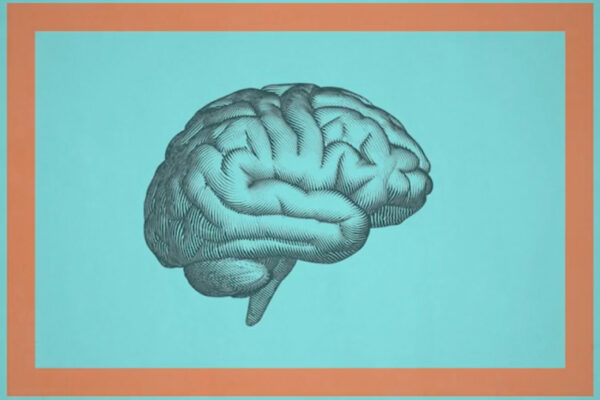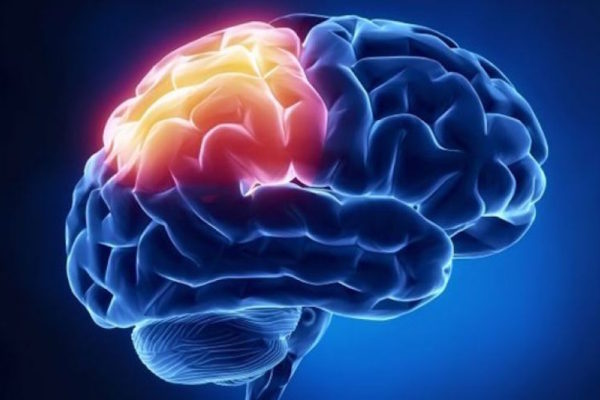Zacks studies perception and cognition using behavioral experiments, functional MRI, computational modeling, and testing of neurological patients. One line of research examines how people parse the continuous stream of behavior into meaningful events, and how this affects memory and cognition. Another line examines how mental imagery contributes to reasoning about spatial relations, especially how mental representations of one’s body are updated during imagery and reasoning.

Jeffrey Zacks
Chair and Professor of Psychological & Brain Sciences, Edgar James Swift Professor in Arts & Sciences, Professor of Radiology
Contact Information
- Phone: 314-935-8454
- Email: jzacks@wustl.edu
- Website: Website
Media Contact
In the media
Why ‘Brownouts’ Undermine Career Success And How To Outsmart Them
Jeffrey Zacks, professor of psychological and brain sciences
Reading the pandemic data
Visualizations that avoid perceptual distortions and play to cognitive strengths can improve public understanding of the evolving pandemic, writes Jeffrey Zacks.
Reading the pandemic data
Jeffrey Zacks, professor of psychological and brain sciences
After ‘Parasite,’ Are Subtitles Still a One-Inch Barrier for Americans?
Jeffrey Zacks, professor of psychological and brain sciences
Don’t Tell Me Why I Should Buy Your Product, Show Me
Jeffrey Zacks, professor of psychology
Why ‘This is Us’ Makes You Cry So Much
Jeffrey Zacks, professor of psychology
Opinion: Sorry, You Can’t Speed Read
Rebecca Treiman, the Burke & Elizabeth High Baker Professor of Child Developmental Psychology; and Jeffrey Zacks, professor of psychology
Stories
Zacks’ talk ties movies to neuroscience
Jeffrey Zacks, professor in Arts & Sciences and the School of Medicine, will explain how and why television and movies can have such strong effects on our brains in a Mirowitz Center online program Feb. 2.
Seeing exponential growth for what it is
Jeffrey M. Zacks, professor of psychological and brain sciences in Arts & Sciences, and of radiology at the School of Medicine, explains why we have such a difficult time with exponential growth and how to make its presentation easier to understand.
Stronger memories can help us make sense of future changes
Jeffrey Zacks’s latest research turns on its head some popular beliefs about memory, showing that a failed prediction isn’t simply a failure, but also a cue which can help people update their understanding — as long as they realize their prediction was wrong.
Reading the pandemic data
Visualizations that avoid perceptual distortions and play to cognitive strengths can improve public understanding of the evolving pandemic.
Researchers to model brain’s memory network
Washington University in St. Louis brain scholars will join teams from four other universities in a five-year, $7.5 million research project that aims to build and test the most comprehensive model yet of how people understand and remember events.
‘Flicker: Your Brain on Movies’
Why do so many of us cry at the movies? Why do we flinch when Rocky Balboa takes a punch? What’s really happening in our brains as we immerse ourselves in the lives being acted out on screen? These are the questions that Washington University in St. Louis neuroscientist Jeffrey M. Zacks, PhD, explores in his new book, “Flicker: Your Brain on Movies.”
Faulty memory finds a new culprit
Memory problems related to day-to-day activities — one of the largest complaints of people with Alzheimer’s diease — may be due to older adults’ inability to segment their daily lives into discrete experiences, suggests new psychology research from Washington University in St. Louis. How we perceive events in our current lives influences how we remember them in the future, the study finds.
Everyday Clairvoyance: How your brain makes near-future predictions
Every day we make thousands of tiny predictions — when the bus will arrive, who is knocking on the door, whether the dropped glass will break. Now, in one of the first studies of its kind, researchers at Washington University in St. Louis are beginning to unravel the process by which the brain makes these everyday prognostications.




